
Pin Hwa High School teachers learn to master online classes with technology
The closure of all schools across the country due to the Covid-19 pandemic has thrown teachers a curveball. In ensuring the teaching and learning processes continue, school teachers have started online classes using online platforms such as WhatsApp, Google Classroom, Zoom, Microsoft Teams and others.
To provide online training on e-teaching to over 100 teachers in Pin Hua High School, UTAR lecturer Ts Dr Chen Kah Pin was invited by the Pin Hwa High School to conduct a special online teaching (e-teaching) workshop titled “e-Learning and Teaching (网络教与学)” on 30 January 2021 via ZOOM. The workshop aimed to help the Chinese Independent School teachers in mastering the literacy and skills of online teaching, as well as to enhance their knowledge in applying the necessary online resources and tools in e-teaching.
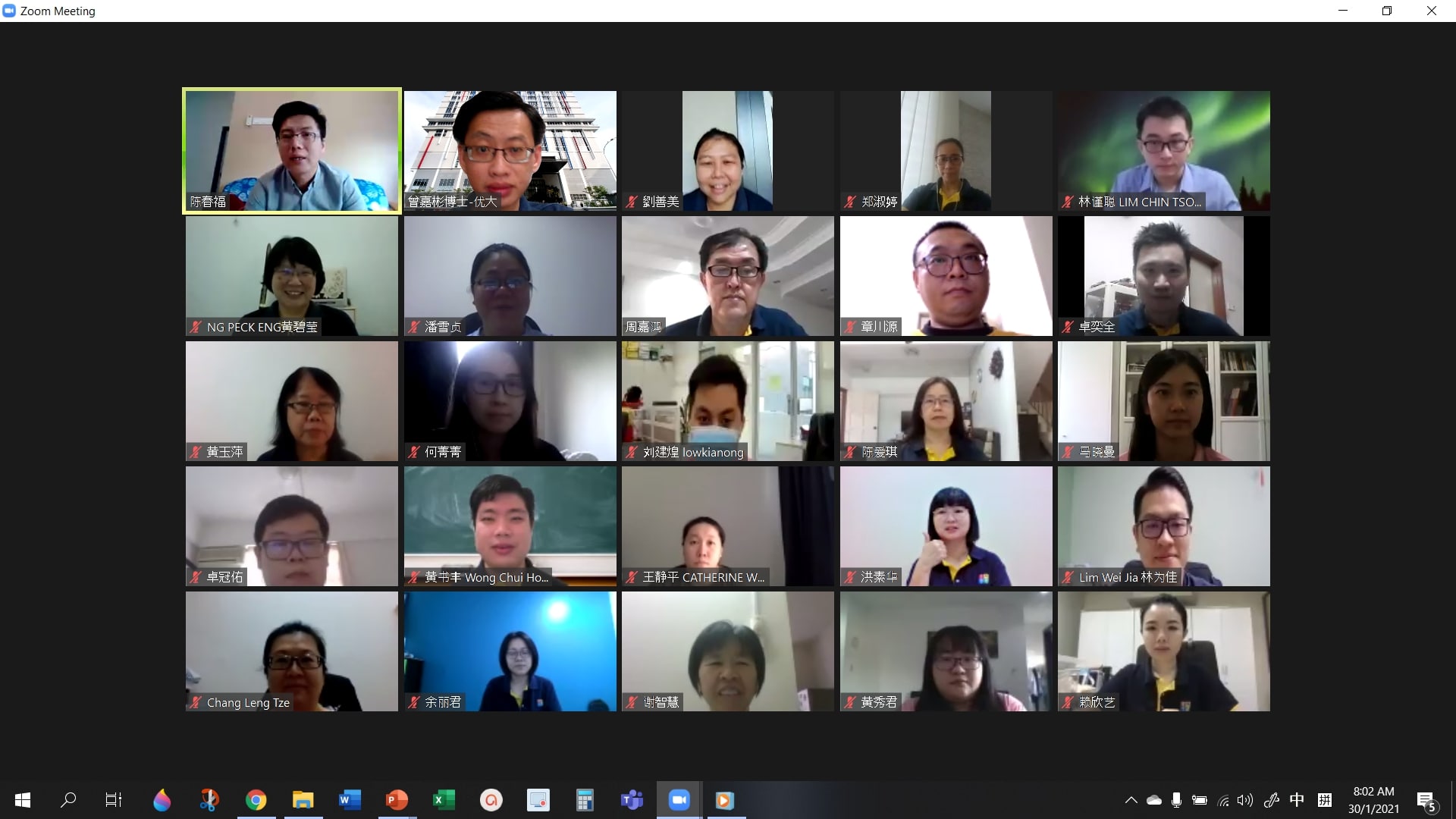
Dr Chen (top row, second from left) with participants
Dr Chen is the Head of UTAR Centre for Curriculum Development and Innovation as well as the lecturer of Lee Kong Chian Faculty of Engineering and Science (LKC FES) Department of Mechanical and Material Engineering. He has many years of teaching experience, especially in conducting online classes (e-teaching). Last year in 2020, he was invited by the United Chinese School Committees’ Association of Malaysia (Dong Zong) to teach and assist the teachers from different Chinese independent high schools to master the necessary online learning resources and tools.
“The main purpose of this online training is to share online teaching and learning with school teachers. Through this training, the teachers will be able to list down the tools and equipment requirements for e-teaching purpose. Besides, teachers will also be able to engage students during online teaching and online learning. The teachers have learned to conduct online assessment using various online platforms such as Kahoot, Google Form and Quizizz,” said Dr Chen.
According to Dr Chen, teachers are facing a lot of challenges while conducting e-teaching. He added, “To achieve a good performance in e-teaching, a teacher must know how to apply an effective teaching model, such as the BOPPPS model. The model constructs six stages including bridge-in, objective, pre-assessment, participatory learning, post-assessment and summary. These six stages form a systematic and complete teaching process, providing specific operational steps.”
“Participatory learning is the most critical part of BOPPPS model. Through the implementation of participatory learning, students are encouraged to engage in active learning. The teachers can also arrange various online interactive modes to attract the students so that they will have a sense of participation during the class. At the end of the class, the students are given some tests for evaluation purpose. After the class, teachers could summarise and sort out the key points to arouse students’ reflection,” explained Dr Chen.
Dr Chen also shared his experience in applying essential techniques and skills to conduct a quality e-teaching. He demonstrated to the participants the various ways of applying the online teaching and learning tools. These online teaching and learning tools include Kahoot, Google Form, Blendspace, Padlet as well as other practical evaluation tools.
The interactive online workshop ended with a Q&A session between Dr Chen and the teachers from Pin Hwa High School.
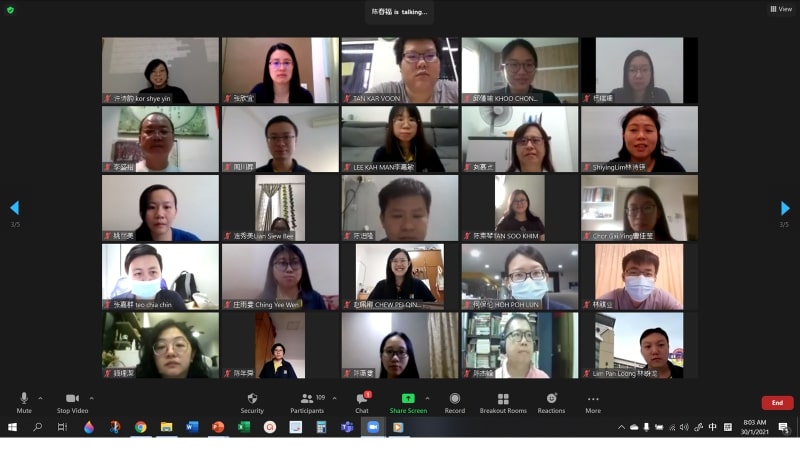
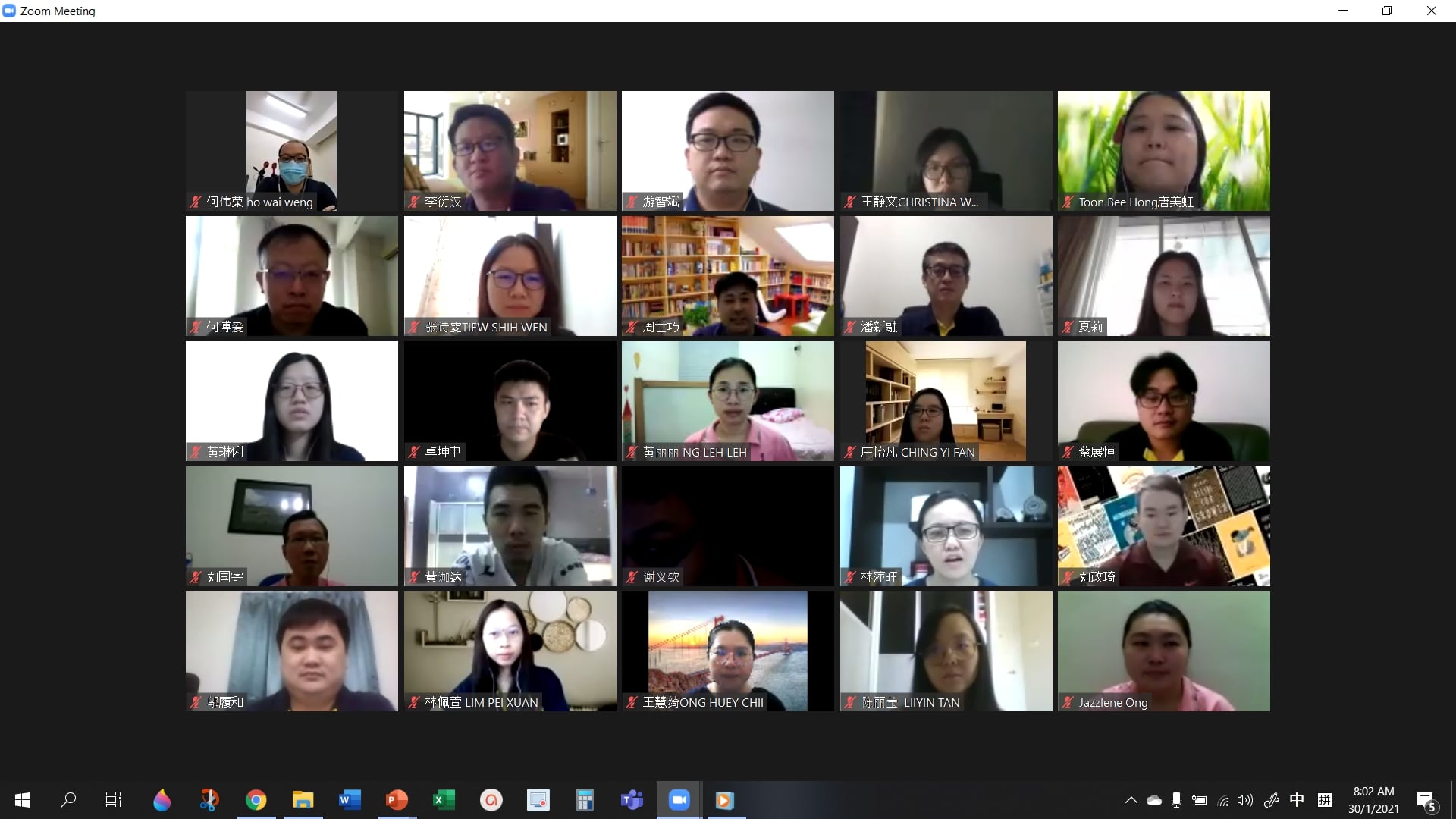
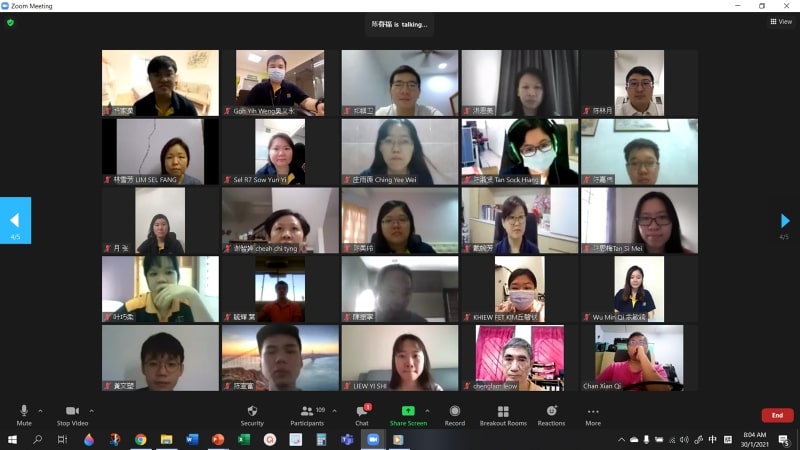
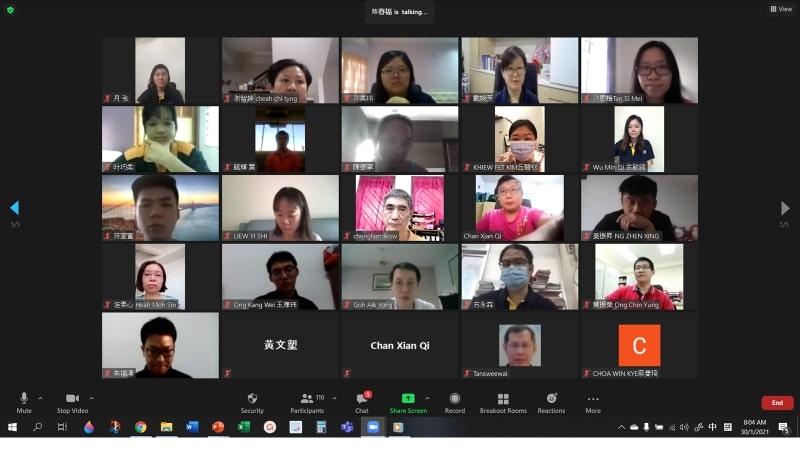
The participants taking group photos after the online training
© 2021 UNIVERSITI TUNKU ABDUL RAHMAN DU012(A).
Wholly owned by UTAR Education Foundation Co. No. 578227-M LEGAL STATEMENT TERM OF USAGE PRIVACY NOTICE